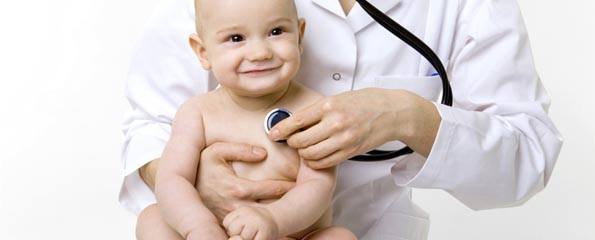Health Checks in Childhood
When should children be taken for health checks?
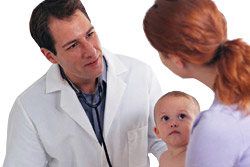 Infants and children should visit the doctor or community health nurse regularly for check-ups.
Infants and children should visit the doctor or community health nurse regularly for check-ups.
At each check-up, you should bring along your child’s Personal Health Record, in which important weight, height and head circumference measurements can be noted and compared to average growth rates. Personal Health Records can also be used to record any concerns that parents may wish to discuss with health workers.
These visits are independent of illness. This means that even if your child is healthy, they should attend each of these visits. Similarly, if your child is unwell or you have any concerns that you would like to discuss with a health professional outside of these visit times, make an appointment to see your doctor.
The ages at which children should see a doctor or nurse, the type of tests they will perform, and the types of information they will be interested in, are outlined below. Your doctor or health nurse may recommend more frequent health check-ups depending on your child’s developmental progress.
Doctors will examine your baby’s birth weight, length and head circumference. Neonatal screening tests will be used to check for serious health problems.
Hepatitis B immunisation is usually administered shortly after birth.
General enquiries about the pregnancy, labour and the baby’s first few days will usually be made before leaving hospital.
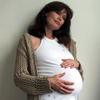 | For more information about pregnancy, including preconception advice, stages of pregnancy, investigations, complications, living with pregnancy and birth, see Pregnancy. |
At this health check, the doctor or nurse will be interested in both the baby and the parents. In particular, they will want to know how your baby has been developing, feeding and settling, and how you are managing with the newborn. They may ask questions about vision and hearing to determine if there are any problems.
A plan for immunisation may also be discussed at this stage.
The 6–8 week check will include physical, emotional and social assessments of both the mother and the baby.
The mother should bring the baby’s Health Record, the discharge summary, any other relevant information, and a list of questions she wants to discuss during the consultation. An appointment should be made for both mother and baby to allow enough time for the assessment.
The baby’s weight, length and head circumference will be measured again. The doctor or nurse will enquire about any health problems or concerns you have about the child. Your plan for immunisation may also be reviewed at this stage.
At this check-up, the growth and physical development of your child will be assessed. You may wish to discuss moving to solid foods, the play and social development of your child, crawling, sleeping, and helping your child to develop language.
At this check-up, the growth and physical development of your child will be assessed. The doctor or nurse may be interested in how your child is learning and behaving, moving, walking, talking, and understanding what others say. You may wish to discuss toilet training and discipline.
Doctors will routinely perform tests to check fine motor control by watching the way the child manipulates small objects. They may ask the child to perform certain actions to test physical development (e.g. walking or jumping).
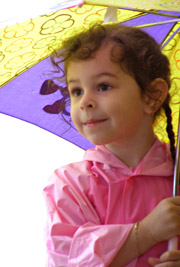 This check up will include an assessment of growth, hearing, vision and speech. Height and weight will again be measured at this age. Children’s walking will also be checked.
This check up will include an assessment of growth, hearing, vision and speech. Height and weight will again be measured at this age. Children’s walking will also be checked.
Any concerns that you have about language, behaviour and learning may be addressed.
Doctors may check the cognitive abilities of children by asking them to name objects or body parts and to participate in activities like drawing shapes or assembling blocks.
This health check is suggested just before the child begins kindergarten or preschool. This will be much the same as the check performed at two years of age, and will assess growth, hearing, vision and speech.
Weight and height will be measured. Preschool immunisations should be completed. Any concerns you have about your child’s development and preparations for school should be discussed. At this age, doctors may check that a child can hold a pencil in a tripod grip.
More information
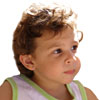 | For more information on developmental milestones in childhood and childhood immunisation, see Developmental Milestones. |
References
- Children, Youth and Women’s Health Service. Parenting and child health: Health checks [online]. Adelaide: Government of South Australia. Health Checks. 1 September 2008 [cited 31 October 2008]. Available from URL: http://www.cyh.com/ HealthTopics/ HealthTopicDetails.aspx? p=114&np=304&id=1480
- Royal Australian College of General Practitioners. Guidelines for preventive activities in general practice [6th edition]. South Melbourne: RACGP; 2005.
- Piejko E. The postpartum visit: Why wait 6 weeks? Aust Fam Physician. 2006; 35(9): 674-8.
- Shea S. Developmental assessment. In: Goldbloom RB [ed]. Pediatric Clinical Skills. Philadelphia: Elsevier Health Sciences; 2002, 91-110.
- Hamilton S. Screening for developmental delay: Reliable, easy to use tools. J Fam Pract. 2006; 55(5): 415-23.
- Sheridan M. Birth to five years: Children’s developmental progress [2nd edition]. Australian Council for Educational Research; 1997.
Dates
Tags
Created by:

 Login
Login